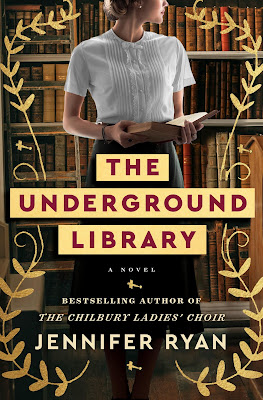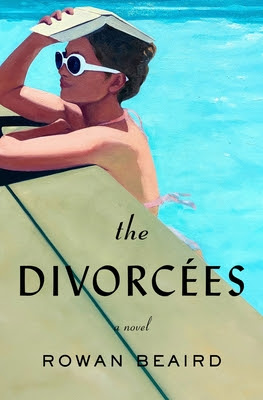For the A to Z Challenge, I'm discussing different book genres/categories. Each day, I will give a few details about the genre/category and an example or two. I would love to know your thoughts on the genre/category and if you have any reading suggestions. Be sure to check out all of my A to Z posts.
Amazon affiliate links are used on this site.
Historical fiction is a popular genre that often blends in with other genres like romance, women's fiction, and thrillers. There are even historical fantasy novels (I particularly enjoyed Shadow of Night by Deborah Harkness)
As the name implies the book is set in the past. But how far into the past does it need to be to be consider historical fiction? I watched a class on Coursera a few years ago about historical fiction and that was the first question of the discussion. Would a book set in 2020 be historical fiction? I'm sort of struggling with the 1990s being considered historical fiction these days, though I have less trouble considering the 1980s historical fiction. Why? Probably because I was a child in the 1980s and so less aware of events and society. But the 1990s were my high school and college years.
A second question that came up when trying to define historical fiction was about the author. Would a book set in the 1850s by an author living in the 1850s be considered historical fiction? What about an author who lived in the 1970s but didn't write a book set in the 1970s until 2000?
For me, I typically consider a book to be a work of historical fiction if it is written about a point in the past that was 30 or 40 years ago by an author not currently living in that particular point in time (whether the author was alive during that point doesn't matter to me). So an author who lived through the 1980s but is writing a story about 1980s while living in 2024 would be writing historical fiction.
Does historical fiction have to be about a real place or a real person? Last week for B I discussed Biographical Fiction, which is about a real person set in a fictional story. While a lot of the recent historical fiction I've read has been about a real person. It doesn't always. The place doesn't have to actually exists either. Often writers of historical fiction will create people and places that resemble actual people and places or can stand in for real people and places. It depends on the goal of the author. If it is more about an event or social norms of the period then the place and people can be figments of the imagination.
Historical fiction is probably the genre I read the most in. Most of what I read though is set during WWII. I've been trying to expand that period and have read a few books set in the early 1900s and up to the 1970s. All three of us who reviews for Girl Who Reads read historical fiction. Susan and I have the most similar taste in historical fiction with reading WWII fiction though Susan reads more set in the 1950s and 1960s than I do. MK often reads much earlier set novels like those set in the 1400s and 1500s.
Here are examples of historical fiction that we've reviewed recently:
The Underground Library by Jennifer Ryan
When new deputy librarian, Juliet Lansdown, finds that Bethnal Green Library isn't the bustling hub she's expecting, she becomes determined to breathe life back into it. But can she show the men in charge that a woman is up to the task of running it, especially when a confrontation with her past threatens to derail her?
Katie Upwood is thrilled to be working at the library, although she's only there until she heads off to university in the fall. But after the death of her beau on the front line and amid tumultuous family strife, she finds herself harboring a life-changing secret with no one to turn to for help.
Sofie Baumann, a young Jewish refugee, came to London on a domestic service visa only to find herself working as a maid for a man who treats her abominably. She escapes to the library every chance she can, finding friendship in the literary community and aid in finding her sister, who is still trying to flee occupied Europe.
When a slew of bombs destroy the library, Juliet relocates the stacks to the local Underground station where the city's residents shelter nightly, determined to lend out stories that will keep spirits up. But tragedy after tragedy threatens to unmoor the women and sever the ties of their community. Will Juliet, Kate, and Sofie be able to overcome their own troubles to save the library? Or will the beating heart of their neighborhood be lost forever?
Buy The Underground Library at Amazon
Read my review.
The Divorcées by Rowan Beaird
Lois Saunders thought marrying the right man would cure her loneliness, but as picture-perfect as her husband is, she is suffocating in their loveless marriage. In 1951, though, unhappiness is hardly grounds for divorce―except in Reno, Nevada.
At the Golden Yarrow, the most respectable of Reno’s famous “divorce ranches,” Lois finds herself living with half a dozen other would-be divorcées, all in Reno for the six weeks’ residency that is the state’s only divorce requirement. They spend their days riding horses and their nights flirting with cowboys, and it’s as wild and fun as Lake Forest, Illinois, is prim and stifling. But it isn’t until Greer Lang arrives that Lois’s world truly cracks open. Gorgeous, beguiling, and completely indifferent to societal convention, Greer is unlike anyone Lois has ever met―and she sees something in Lois that no one else ever has. Under her influence, Lois begins to push against the limits that have always restrained her. But how much can she really trust her mysterious new friend? And how far will she go to forge her independence, on her own terms?
Buy The Divorcées at Amazon
1666. It is a year after plague has devastated England. Young widow Cecilia Thorowgood is a prisoner, trapped and isolated within the cavernous London townhouse of her older sister. At the mercy of a legion of doctors who fail to cure her grief with their impatient scalpels, Cecilia shows no signs of improvement. Soon, her sister makes a decision borne of she hires a new physician, someone known for more unusual methods. But he is a foreigner. A Jew. And despite his attempts to save Cecilia, he knows he cannot quell the storm of grief that rages within her. There is no easy cure for melancholy.
David Mendes fled Portugal to seek a new life in London, where he could practice his faith openly and leave the past behind. Still reeling from the loss of his beloved friend, struggling with his religion and his past, David finds himself in this foreign land, free and safe, but incapable of happiness—caring not even for himself, but only for his ailing father. The security he has found in London threatens to disappear when he meets Cecilia, and he finds himself torn between his duty to medicine and the beating of his own heart. He is the only one who can see her pain; the glimmers of light she emits, even in her gloom, are enough to make him believe once more in love.
Facing seemingly insurmountable challenges, David and Cecilia must endure prejudice, heartbreak, and calamity before they can be together. A Great Fire is coming—and with the city in flames around them, love has never felt so impossible.
Buy The Phoenix Bride at Amazon
Read MK's review.
Do you have a favorite era, person, or event you like to read about?
Donna Huber is an avid reader and natural encourager. She is the founder of Girl Who Reads and the author of how-to marketing book Secrets to a Successful Blog Tour.
Enjoyed this post? Never miss out on future posts by following us. Get even more book news in your inbox, sign up for our newsletter today! Or Follow Girl Who Reads with Bloglovin. Girl Who Reads is an Amazon advertising affiliate; a small commission is earned when purchases are made at Amazon using any Amazon links on this site. Thank you for supporting Girl Who Reads.






















When reading historical fiction, I like the 1920s and Regency romances.
ReplyDeleteRonel visiting for H: My Languishing TBR: H
Minotaur